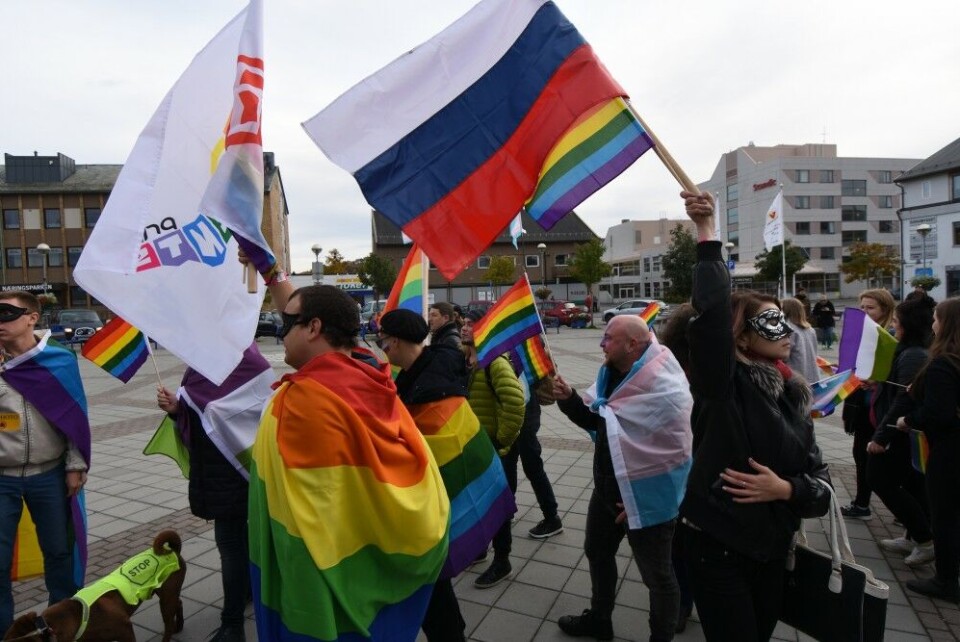
Pride Parade participants stopped by FSB on return to Russia
«We know everything about you,» the interrogators told, but continued to ask about who organized and financed the pride parade that took place in Norway’s border town of Kirkenes this weekend.
p.p1 {margin: 0.0px 0.0px 0.0px 0.0px; font: 11.0px Helvetica; color: #000000; -webkit-text-stroke: #000000}p.p2 {margin: 0.0px 0.0px 0.0px 0.0px; font: 11.0px Helvetica; color: #000000; -webkit-text-stroke: #000000; min-height: 13.0px}span.s1 {font-kerning: none}
Returning to Russia in bus on Sunday, three of the participants were taken aside by two non-uniformed FSB employees at Borisoglebsk border checkpoint.
The three were taken into a separate room and interrogated for some 15 minutes.
Tatiana Britskaya, a reporter with Novaya Gazeta in Murmansk, who also took part in the parade in Kirkenes came in a car to the border just after the bus.
«The three were asked about names, addresses, phones and place of work,» she tells to the Barents Observer.
According to Britskaya, the two FSB employees refused to show any documents and were not wearing uniforms like other immigration officials at the checkpoint.
«They asked questions about the event, what happened in Norway, why the Mayor of Kirkenes joined the parade, which flags did we use and who had introduced people to each other,» Tatiana Britskaya elaborates.
She says the activists refused to answer questions from the FSB, but then the two claimed «We know everything about you.»
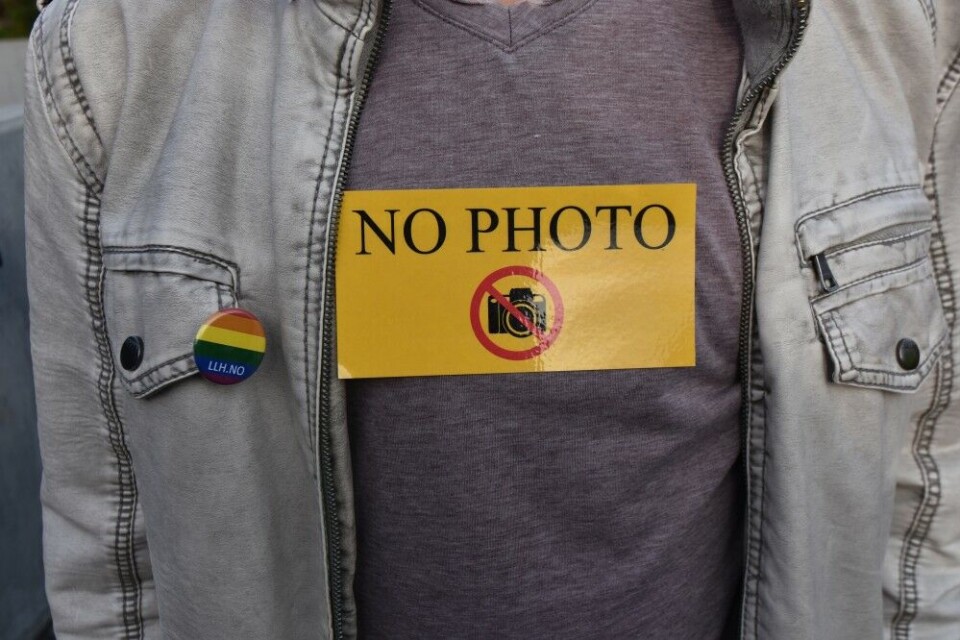
«One of the three who were stopped was asked to sign an empty sheet of paper,» Britskaya says.
FSB apparently also showed interest in who was financing the pride parade in Kirkenes.
Mayor says «Very sad»
Mayor of Kirkenes, Rune Rafaelsen, says to the Barents Observer it is «very sad» that activists who participated in an legitimate Barents gathering financed by Norway were stopped like this by FSB.
«It is very natural to participate, people must be allowed to chose by themselves who to love, independent of sex and borders,» the Mayor says. Rune Rafaelsen himself walked in the front of the pride parade through the streets of Kirkenes and gave a speech at the central square where he quoted Norway’s King Harald who last year in support of diversity and tolerance called for all Norwegians to take care of each other.
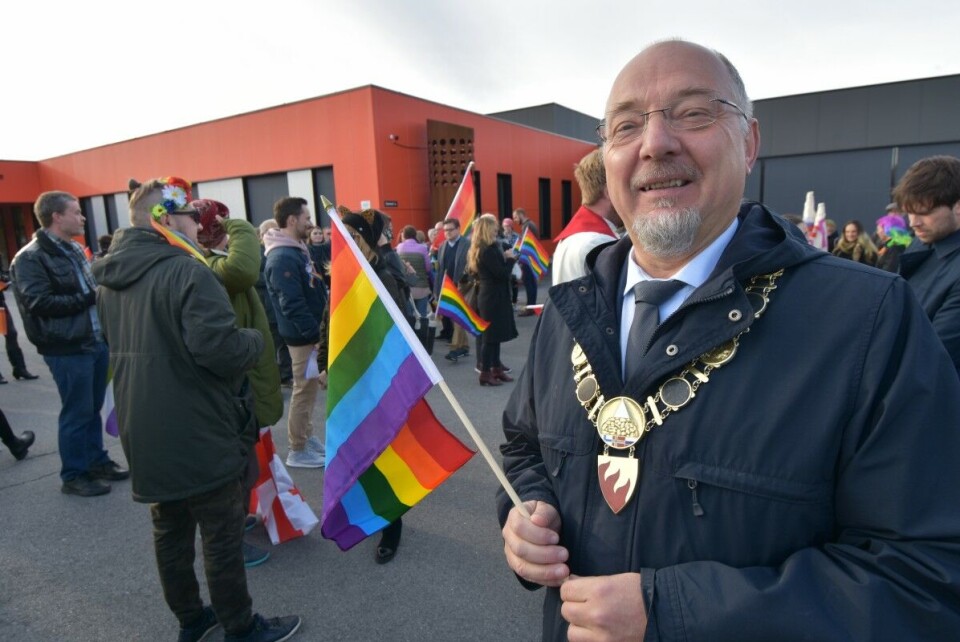
«Norwegians are girls who love girls boys who love boys and boys and girls who love each other.»
The Barents pride parade and the LGBT-seminar and workshops about LGBT rights in Russia that took place on Friday is financed with money for regional cross-border people-to-people cooperation from Norway’s Ministry of Foreign Affairs.
Additional to LGBT-groups in northern- Norway, both Amnesty International and the Norwegian Helsinki Committee were among the organizers.
Human Rights group: «Worrying»
Mina Skouen is Senior Advisor with the Norwegian Helsinki Committee. She says it was a great experience participating in the parade together with the brave Russians and locals in Kirkenes showing solidarity.
«The participants in Barents Pride came to Kirkenes to join a parade for solidarity, security and human rights for all, regardless of sexual orientation and gender identity, together with Norwegian activists and locals. It is worrying that Russian authorities show such interest in people who exercise their freedom of expression and assembly rights,» Skouen says.
The Helsinki Committee will keep an close eye on further developments.
«Naturally, we will follow if the participants experience further pressure in the time to come.»
Diplomat wearing button «Barents free of sodomi»
Russia’s Consulate General in Kirkenes did not attend the parade on Saturday.
On Friday, at an opening ceremony of a local art gallery Kirkenes, one of the Consulate’s diplomats was openly wearing a button reading «Barents free of sodomi.»
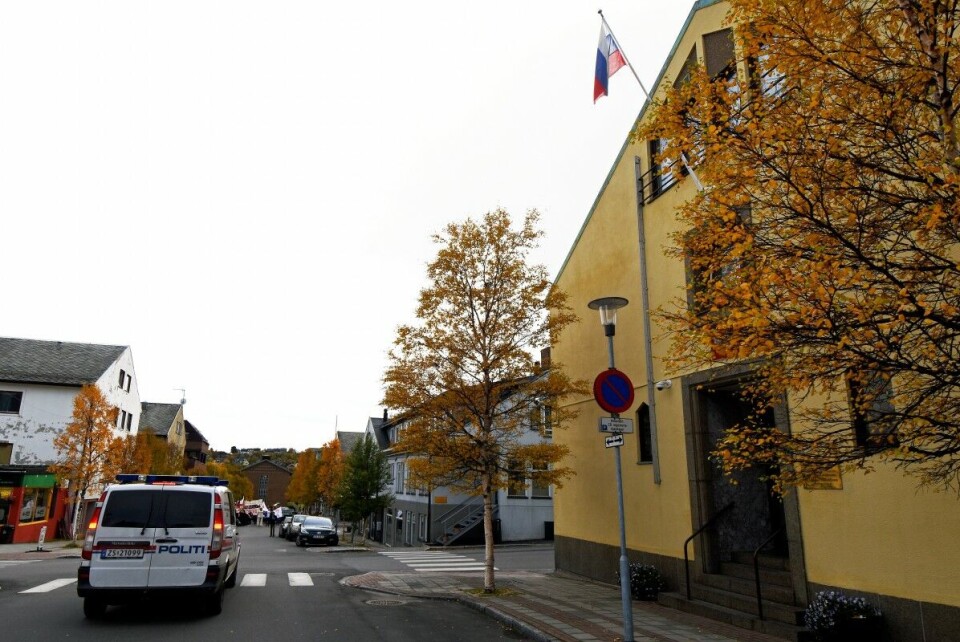
The diplomat did not wanted to elaborate more when asked by the Barents Observer about the slogan on the button.
In Russia, pride demonstrations have often turned vilolent and are said to be among the world’s most dangerous.
In 2013, Russia introduced legislation to outlaw propaganda of non-traditional sexual relationships towards minors. The law had a chilling effect on gay and lesbian rights activists and led to increased violence towards them across Russia.
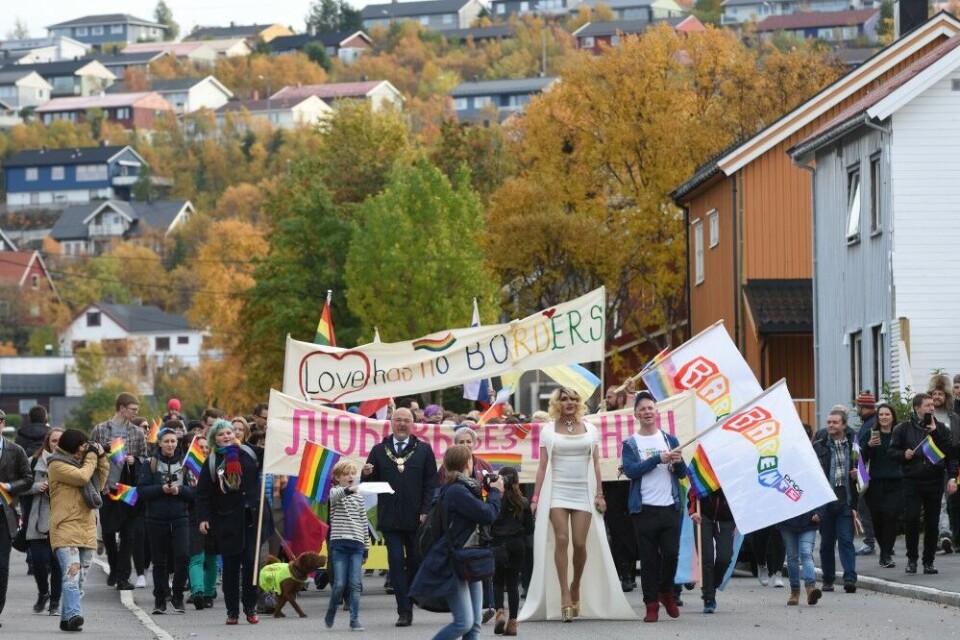
Amnesty International has campaigned against Chechen authorities since the Russian newspaper Novaya Gazeta earlier this year published reports that Chechen authorities had detained, tortured and even killed gay men. In Grozny, authorities responded by claiming that gay men do not exists in the Republic, even as they defended killing them in the name of “honor.”
You can help us…
…. we hope you enjoyed reading this article. Unlike many others, the Barents Observer has no paywall. We want to keep our journalism open to everyone, including to our Russian readers. The Independent Barents Observer is a journalist-owned newspaper. It takes a lot of hard work and money to produce. But, we strongly believe our bilingual reporting makes a difference in the north. We therefore got a small favor to ask; make a contribution to our work.
















